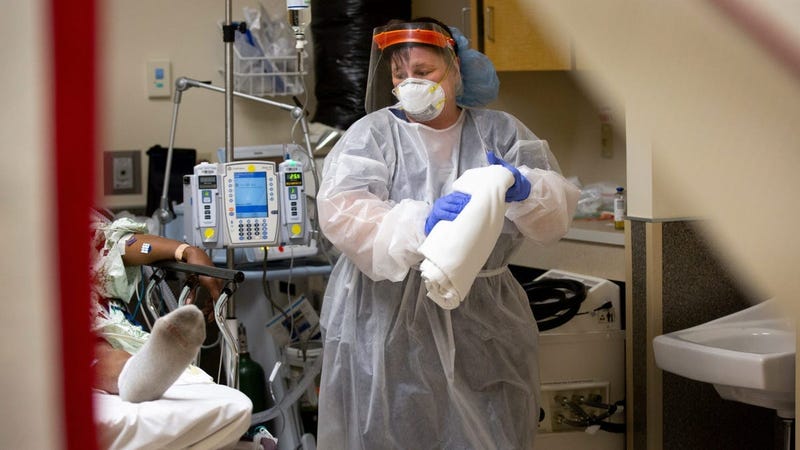
The COVID-19 pandemic has presented unprecedented challenges for doctors, nurses and other medical professionals.
Not only are health care workers making life or death decisions for their patients, some of them are making those same decisions for themselves when going to work every day.
Recent studies show a significant percentage of frontline health care workers are exhibiting signs of burnout and even Post Traumatic Stress Disorder (PTSD).
"Psychological trauma often relies on a person’s subjective experience of an event, and to what extent they believe their life, bodily integrity, or psychological well-being was threatened," writes Elyssa Barbash for Psychology Today.
Barbash is a Licensed Psychologist. She is a leading authority on psychological trauma and a PTSD Licensed Psychologist.
Barbash says that people who experience trauma may react with intense fear, horror, numbness, or helplessness. Reactions to trauma vary greatly, from a mild reaction with only minimal interruptions in one’s daily life to reactions that are more severe and debilitating.
"As a trauma specialist, it is exceedingly clear to me just how traumatic this situation is for nearly every single person in the world," says Barbash.
LISTEN NOW on the RADIO.COM AppFollow RADIO.COMFacebook | Twitter | Instagram
